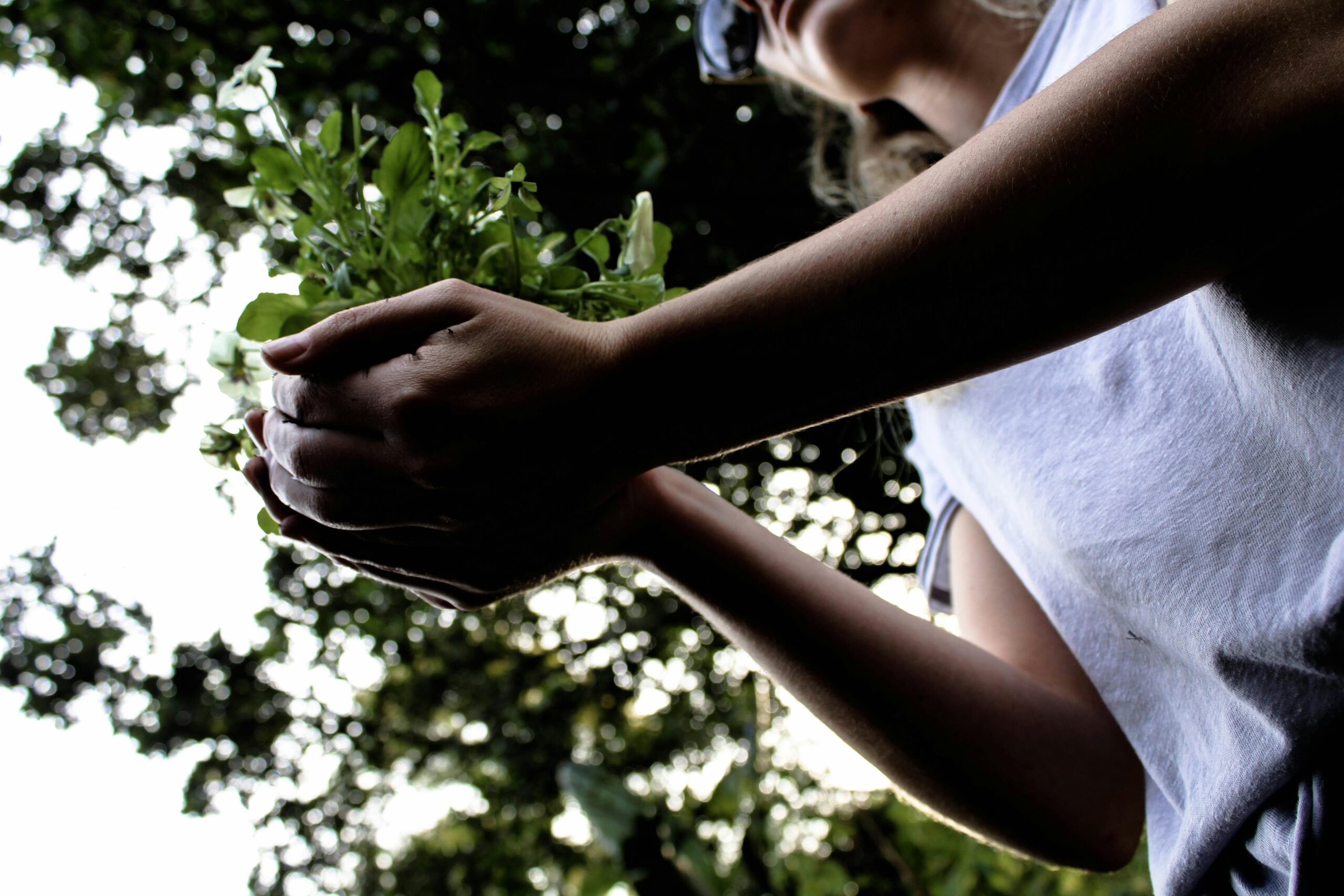
Ahimsa, The First Yama
The Yoga Sutras of Patanjali provide us with a guide to reaching Samadhi – the state of bliss.
The Sutras cover what is known as the ‘8 Limbs of Yoga’ . Each limb is an aspect of the path of yoga, and offers us guidance within our practice, both on and off the mat.
The first limb is made up of the ‘Yamas’, or moral values. The guide to how we can best act towards ourselves, and the world around us.
Rather than thinking of the yamas and niyamas as a mandatory “to-do list,” view them as invitations to act in ways that promote inner and outer peace and bliss. They also provide a mirror in which to study your practice and your Self.
The path of practice begins with understanding and refining the different dimensions of who you are, and it unfolds progressively, not all at once. The whole goal of yoga is Self-realisation, which can also be called freedom.
The yamas give us infinite opportunities to truly transform your life.
Patanjali doesn’t tell us how specifically to “do” the yamas and niyamas, that’s up to us. But the promise is that, if you align your life with them, they’ll lead you to the higher calling that many of us aspire to. Including peace, abundance, harmonious relationships, contentment, self-acceptance, love, and meaningful connection to the Divine. These are considered the essence of happiness.
Ahimsa and Kindness
The very first Yama, is ‘Ahimsa’, which means ‘non-harming’, ‘non-violence’ or simply ‘kindness’. In this sense, we’re talking about non-violence in all aspects of life. When we act with ‘Ahimsa’ in mind, this means not physically harming others, ourselves, or nature; not thinking negative thoughts about others or ourselves; and making sure that what we do and how we do it is done in harmony, rather than harm.
Real transformation happens when we begin to practise yoga in all aspects of our being.
Ahimsa goes beyond the absence of physical harm, encompassing a way of life rooted in compassion, respect, and a commitment to peaceful action. This post delves into the essence of Ahimsa, exploring its origins, core principles, and practical applications in our daily lives.
Ahimsa and Connection to All Life
The concept of Ahimsa is inspired by the fundamental belief in the interconnectedness of all living beings. We are all part of a web of life, and harming another being is ultimately harming ourselves. This interconnectedness often finds expression in the metaphor of the Atman (the inner self) residing within all creatures.
The Many Dimensions of Ahimsa
Ahimsa extends far beyond the absence of physical violence. It encompasses a holistic approach to non-violence, encompassing:
- Non-violence in Action: Ahimsa urges us to avoid causing physical harm to any living being. This extends to our dietary choices, with many practitioners adopting vegetarianism or veganism to minimize harm.
- Non-violence in Speech: Our words have the power to wound or heal. Ahimsa encourages mindful speech, devoid of harshness, gossip, or negativity.
- Non-violence in Thought: Our internal world shapes our actions. Ahimsa emphasizes cultivating thoughts of kindness, compassion, and understanding.
Ahimsa in Action
Ahimsa has inspired powerful movements for social change. Mahatma Gandhi, the iconic leader of India’s independence movement, famously employed Satyagraha (meaning “truth force”) a form of non-violent resistance based on Ahimsa principles. Through marches, boycotts, and civil disobedience, Gandhi challenged British rule, demonstrating the transformative power of peaceful action.
Ahimsa’s principles extend beyond political activism. It can inspire non-violent conflict resolution in our daily lives. By approaching disagreements with empathy and a willingness to find common ground, we can navigate difficult situations peacefully.
Cultivating Ahimsa in Everyday Life
While Ahimsa may seem like a lofty goal, there are many ways to integrate its principles into our daily lives:
- Mindful Consumption: Be conscious of the impact of your choices. Consider supporting businesses that prioritize sustainability and ethical practices.
- Compassionate Communication: Listen actively and express yourself with kindness and respect, even in disagreement.
- Empathy in Action: Volunteer your time or resources to help those in need.
- Inner Peace through Mindfulness: Practices like yoga meditation can help cultivate inner peace, which naturally extends outward as compassion.
- Environmental Awareness: Reduce your ecological footprint and advocate for environmental protection.
The practice of Ahimsa is a continuous journey of self-awareness and transformation. By actively engaging with its principles, we can create a ripple effect of peace and compassion in our communities, ultimately fostering a more harmonious world.
The Benefits of Ahimsa: A Ripple Effect of Peace
Embracing Ahimsa offers a multitude of benefits for ourselves and the world around us:
- Inner Peace and Well-Being: Replacing negativity with compassion and forgiveness reduces stress and fosters a sense of inner calm.
- Strengthened Relationships: Non-violent communication fosters trust and understanding in our interactions with others.
- Social Harmony: Ahimsa creates a foundation for peaceful co-existence and conflict resolution within communities.
- Environmental Sustainability: By minimizing harm to all living beings, environmental awareness naturally follows.
Challenges and Considerations on the Path of Ahimsa
The path of Ahimsa isn’t always easy. Navigating conflicts peacefully can be difficult, and upholding non-violent principles in the face of aggression can be challenging. However, the potential rewards for ourselves and future generations far outweigh the difficulties.
Ahimsa doesn’t imply passivity. It involves actively standing up for what is right without resorting to violence.
Ahimsa and Asana
From complete beginners to the most experienced yogi, we can all feel frustrated when our physical yoga practice doesn’t progress as quickly as we’d like…. Remembering Ahimsa throughout our yoga practice guides us to let go of thinking negatively about our body; accepting ourselves completely – no matter how strong or flexible we are at this moment. Non-violence in the physical sense here means we don’t push ourselves over the edge; of course we challenge ourselves in order to grow, leaning in to that sometimes scary edge, but never pushing ourselves to the point of harm.
By respecting our boundaries and listening to our bodies, the practice becomes sustainable and a way to really learn about ourselves.
When we let go of clinging to the expectations of what we ‘should’ be able to do, and stop scolding ourselves with harmful thoughts, our body responds by working with us, not against us. We can open to the fact that the body is a pathway to freedom.
Ahimsa in Diet
A question people often ask is; ‘Do I have to be vegetarian or vegan now I’m practising yoga?’. While the guidance of Ahimsa advises not harming another living thing, and therefore suggesting abstaining from eating animals, there has to be a balance. If cutting out certain things from your diet causes you harm, then it’s important to consider what works best. Can you change things a little so you’re supporting environmentally friendly companies? Eat organically? Maybe eat vegan or vegetarian at least a couple of times a week? Buy fair trade?
Whether you choose to eat meat and animal products or not, doing what is right for your unique body and helping to support the environment at the same time is something we can all be a part of.
Ahimsa in Thoughts
Our thoughts play such a big role in our overall wellbeing. You may be doing all the right things, eating well, exercising lots, drinking your green smoothies, and taking supplements you need but if your thoughts are still harmful, you can be sure you’re not feeling as good as you could.
Ahimsa means being mindful of our thoughts. Our bodies cannot distinguish between real or imagined threat. When we think negatively, we send messages through our body that cause the fight or flight response, secreting cortisol (the ‘stress hormone’) into the body. This lowers the immune system, making us more susceptible to illness and physical pain. It’s not just thoughts about ourselves we should be mindful of. Although it is important to really feel the full spectrum of emotions as they arise, so-called ‘negative’ emotions such as anger and jealousy can take their toll as well. So while I would never encourage false positivity, I would encourage you to observe the thoughts you have towards yourself and others and then notice how these thoughts make you feel. All our emotions have their place but we can sit with them, without being attached to the story behind them, and release them when we have processed them.
“Watch your thoughts; they become words. Watch your words; they become actions. Watch your actions; they become habit. Watch your habits; they become character. Watch your character; it becomes your destiny.” – Lao Tzu.
On the other hand, ‘non-violent’, loving thoughts cause dopamine (the ‘feel good’, ‘relaxation’ chemical) to be released in to the body. This strengthens the immune system, and actually has the power to cure us from illness.
Ahimsa and Medical Journals
Multiple studies in medical journals have shown that patients who were considered ‘optimists’ had stronger immune systems, recovered quicker from injury and illness, and actually live longer.
As a bonus; the happiness we experience when we’re thinking good thoughts is contagious! Science has shown us that if a friend of ours is happy, we’re 25% more likely to be happy ourselves. Even if a neighbour or acquaintance is happy, our chance of happiness increases by 6%!
When we pay attention to the aspects of yoga that don’t involve balancing upside down or doing the splits, we begin to realise that there is a much deeper meaning to our practice, and that the path of yoga has so many amazing gifts to offer.
Here are some resources for further exploration of Ahimsa:
- Books:
If you’d like more information on anything yoga please contact me or book here to practise with me in Marlow, Twickenham and online.
With love
Anney xx




